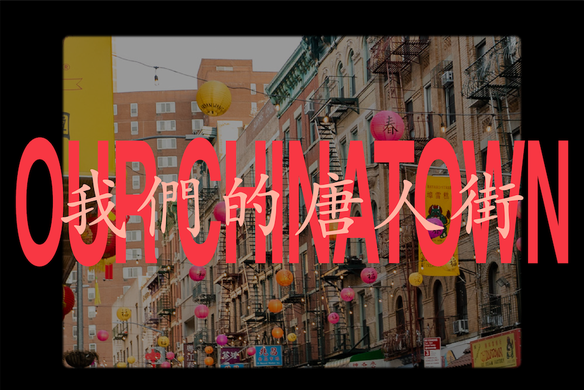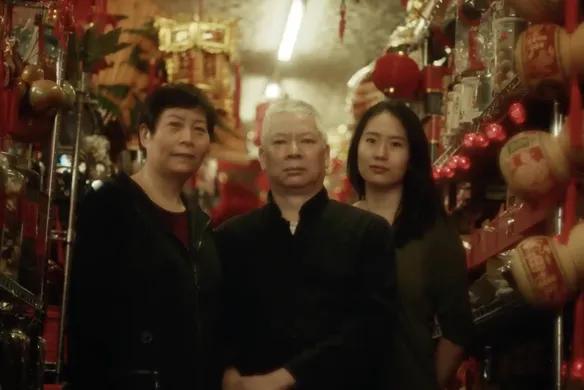Table of contents
“Chinatown is a neighborhood where nothing comes easy,” says Liz Yee, owner of cheung-fun eatery Tonii’s Fresh Rice Noodle and sponge cake bakery Kam Hing Coffee Shop in New York’s Chinatown. “It makes people strong and very resilient.”
Chinatown means many things to the business owners and residents who call the community home — long days, back-breaking work, a painful past, belonging, resilience, opportunity, the American dream. And, as they look to the future, legacy.
In Our Chinatown, hear owners of New York Chinatown businesses share their thoughts on the importance of Chinatown’s past, present, and future.
NYC Chinatown: Resilience, built from exclusion
“Chinatown is a product of isolation and exclusion. We were kicked out of mainstream society and that’s why we had to make our own community and make our own neighborhood,” reflects Alice Liu, owner of Grand Tea & Imports. She has lived in the neighborhood for 26 years. Her father, Zhong Liu, immigrated to the U.S. and decided to open a shop selling tea and other cultural goods because he wanted to dispel myths about tea, educate consumers about it, and also provide a way for his kids to connect with their cultural roots. He was so passionate about tea that he was even given the nickname, “Teafucious.”
“For us, Chinatown is our livelihood. It’s a safe space for my parents, it was a safe space for me growing up, to grow into my identity,” explains Alice. “No one ever made fun of my food; no one ever made fun of the way I looked.”
Jefferson Li, owner of butcher shop 47 Division Street Trading Co., has been a part of the business his parents built since he was five years old. He got his work ethic from them, watching as they worked 60 to 84 hours a week to make ends meet.
“You do it and you just kind of grind and push for the hope that your kids can have a better lifestyle,” he says.
In fact, the grit and resilience of Chinatowns in New York, San Francisco, Los Angeles, and other major U.S. cities is even more apparent with historical context. The Chinese Exclusion Act of 1882 banned Chinese immigrants from entering the U.S., and those who were already in the states were excluded from most jobs or owning businesses — with the exception of service-oriented ventures like laundromats and restaurants.
This led to the growth of Chinatowns across the country — communities where Chinese immigrants and their children could find housing, open businesses, and find a sense of belonging.
For more than a century, Chinatowns have been what Li calls a “foothold for Chinese immigrants.” He adds, “People came here to be the American dream. You come here from China or Taiwan, you don’t speak the English language, no understanding of the culture, no command of the norms or social cues … similar to my father, you get off the plane one day, the very next day you’re going to start working.”
Legacy takes on heightened importance
Fear about the unknowns surrounding COVID-19, along with animosity, misinformation, and blatant racism, brought traffic in Chinatown to a halt. In the meantime, rent still needed to be paid. While businesses around the country struggled in the midst of shutdowns, Chinatowns were particularly vulnerable, being so insulated and dependent on foot traffic.
The Yee family had to temporarily shut down Kam Hing Coffee Shop, and they were terrified everything they built would collapse. Yee’s parents never wanted her to make the family business her career, they wanted her to fulfill other dreams. She went to college for psychology, business, and education, but was pulled back to the business when her brother passed away in 2009. Going through the pandemic fueled her even more to continue her family’s legacy.
“I realized how important my family is and how I wanted to be around them every day,” Yee says. “Kam Hing and Tonii’s is my future, I want to keep it in the family.”
“If the next generation takes over the business that their parents started, you would still have a Chinatown,” says John Yee, Liz’s father and the founder of Kam Hing Coffee Shop. “If you don’t take over and then you lose the storefront, what comes next? Nobody knows.”
Li agrees, and has thought a lot about legacy since the onset of the pandemic.
“Legacy’s extremely important,” he says. “My family went through a lot when they came to America. And it’s kind of a waste, I think, to let that go.”
Seeing people stand up for Asian and Asian-American communities in the face of hate, and the passion that has ignited many younger people to take over their families’ businesses to continue their legacies, gives Li a renewed sense of hope.
“In the past year we’ve seen an outpouring of love for the Asian community and there is change, slowly but surely. There are people who do care about Chinatown. A lot of people do care about the legacy, they do care about their roots.” Li says. “Even against all odds, you can still make it. The American dream is still here in Chinatown.”
![]()








